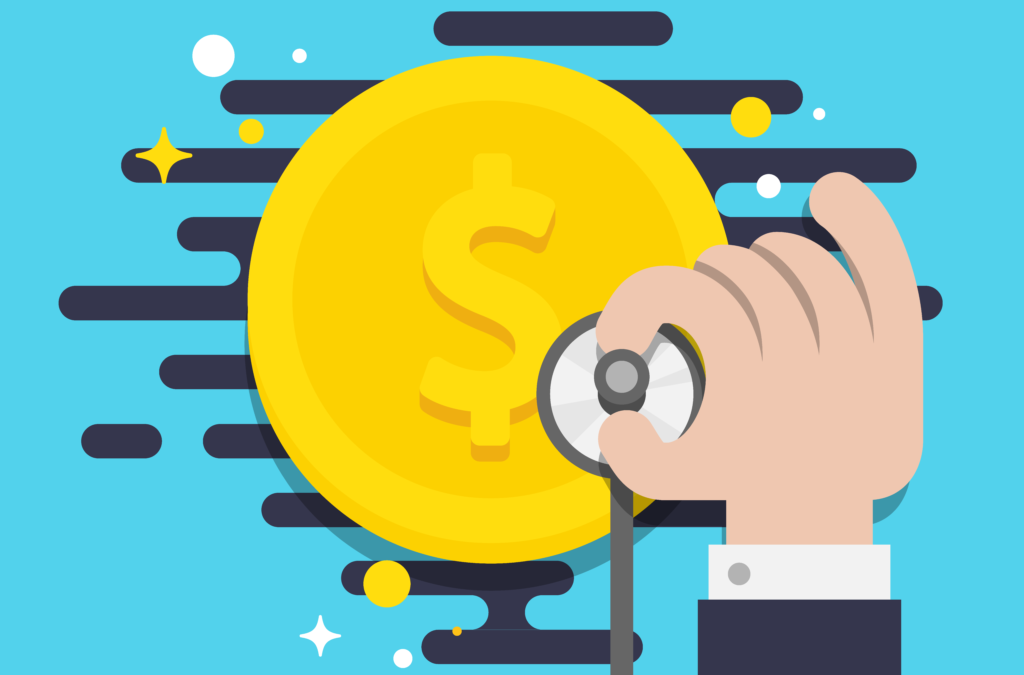The state of one’s financial affairs is referred to as financial health. Your financial health is determined by the quantity of funds you have in savings, the sum of money you are saving for retirement,and how much of your pay you spend on fixed or non-discretionary spending.
Although financial professionals have developed basic standards for each sign of financial wellness, each individual’s situation is unique. As a result, it’s essential to take the time to create your financial plan to ensure that you’re on track to meet your objectives and that you’re not putting yourself in too much financial danger if something unexpected happens.
There are a few critical metrics to be aware of early in the planning phase. One metric is a snapshot of what you own and how much money you owe at a given time. Your house, automobiles, bank accounts, investments, the cash worth of your life insurance plans, and other personal possessions are examples of assets. Mortgage and auto loans, credit cards, and other debts are frequently included in the amounts you owe (your liabilities). The difference between your assets and liabilities is your net worth.
A constant stream of income, few fluctuations in spending, excellent returns on previous investments, and an increasing cash balance are all hallmarks of good financial health.
Financial Health Checks
-
Personal Budgets and Net Worth
Calculating your net worth—the gap between what you own and what you owe. To figure out your net worth, make a list of your assets (what you possess) and liabilities (what you owe) (what you owe). To calculate your net worth, remove your liabilities from your assets. Your net worth reflects your financial situation, and it is natural for it to fluctuate over time.
-
Determine your Budget
A personal budget, which can be made monthly or annually, is a key financial tool to assist you in planning for future costs, cutting unnecessary spending, saving for future goals, and prioritizing where you spend your money.
There are several methods for building a personal budget, but they all require forecasting income and expenses. The revenue and expenditure categories in your budget will vary depending on your circumstances, and they may change over time.
-
Take a Look at Your Spending
Even if you have a sizable savings account, now is an excellent time to reassess your spending habits. A recent bank statement can reveal items you’re paying for things you weren’t aware of or don’t need. Set yourself a challenge by switching to a “low-spend fortnight” or doing a financial detox if you are concerned about your income reducing or losing your job or if you struggle to remain on track with your savings.
-
Emergency Fund
Having an emergency fund can significantly improve your financial situation. The fund is intended to be money set aside and ready to use in an emergency, such as auto repairs or job loss. Your energy fund should have three to six months’ worth of living expenditures.
-
Pay your debts
Reduce your debt. Use the avalanche or snowball techniques. The avalanche strategy recommends paying as much as possible toward the loan with the highest interest rate while paying the bare minimum on the remainder. Meanwhile, the snowball method recommends beginning with the smallest debt and working your way up to the largest debt. Each offers benefits and drawbacks; select the one that best fits your debt burden and money management preferences.
How do you keep your finances in good shape?
It takes discipline to develop good financial habits, but it becomes simpler once you get into a routine. Here are some strategies to keep your finances in good shape:
- Keep a close eye on your finances.
- Cancel any subscriptions that you aren’t using.
- Pay off credit card or personal loan debt.
- Identify your financial objectives.
- Examine your credit report (and make sure your details are correct)
- As soon as you get paid, put money into your savings account.
- Set aside at least three months’ worth of wages in an emergency fund.
Your primary priority should be to pay for your necessities, such as housing, food, and transportation each month. After your necessities are covered, it’s standard advice to strive to save at least 10% of your take-home pay. However, simply having the funds does not imply that you should spend them. You’ll have more earning potential in the future if you can save more now.
Personal finance rules can be effective strategies for financial success. However, it’s critical to look at the larger picture and develop habits to help you make better financial decisions and improve your financial health.


Recent Comments